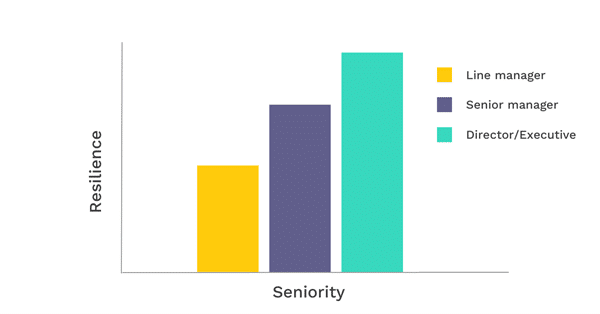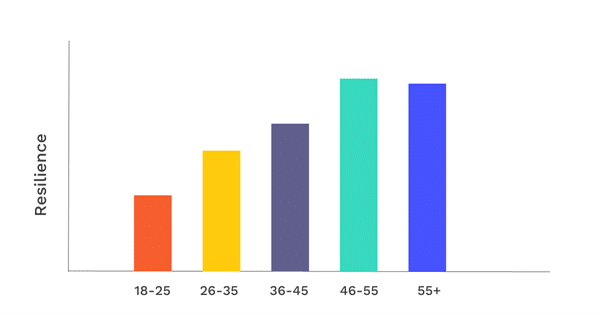27 June 2023
The Wellbeing and Resilience Report 2023: Key Takeaways
The Wellbeing and Resilience Report 2023 provides the latest data on the wellbeing and resilience of the global workforce. Explore the key takeaways below.
Employee wellbeing emerged as the #1 HR trend for 2023. However, the data reveals significant strains and challenges to the wellbeing of working people. The cost-of-living crisis has disrupted financial security, middle managers are experiencing burnout, and young workers are facing regular emotional distress.
It’s clear that one-size fits all approaches are not the answer. Building a healthy and resilient culture requires data-driven interventions tailored to the needs of a diverse workforce.
To help you do that, we are delighted to share the key takeaways from The Wellbeing and Resilience Report 2023. An annual report surveying over 4,000 professionals in more than 60 countries to give a full picture of wellbeing and resilience at work.
Explore the Wellbeing and Resilience Report 2023.
Line managers are crucial to employee wellbeing
14% of an employee’s wellbeing is accounted for by their line manager. Managers who show care and proactively manage team pressure contribute to higher employee wellbeing. Meanwhile excessive workload and not providing recognition undermine employee wellbeing. It’s clear that effective manager development is crucial for building strong team performance and enhancing employee wellbeing.
Discover our programmes for managers.
Line managers are less resilient than their senior counterparts
Line managers report feeling 5% less resilient than senior managers and nearly 10% less resilient than Directors & Executives. Maintaining an open and optimistic mindset was a significant challenge for this group. It’s essential for managers to feel resilient and well-supported. Otherwise, they are at greater risk of burnout, job dissatisfaction and declines in performance.

Gen-Z (18-25) experience the lowest levels of wellbeing and resilience
18–25-year-olds are experiencing the lowest levels of wellbeing and resilience compared to all other age groups. Young women are particularly susceptible to lower resilience against stress and pressure. Their ability to cope is almost 10% lower than the general working population. Meanwhile, young men are the least likely to build strong relationships and access support. Since Gen Z will make up 27% of the workforce by 2025, it’s essential to equip them with the right tools for success.

Remote workers are more resilient than office-based workers
Remote workers report the highest levels of resilience compared to both hybrid and office-based workers. They have stronger habits around nutrition, sleep and boundaries and report higher energy as a result. Organisations should consider flexible working policies intentionally, taking into account the benefits of different arrangements.

Women score lower on resilience and wellbeing than men
Working women report feeling up to 7% less resilient than their male counterparts. Despite having stronger relationships, women reported lower resilience in every other domain. Levels of self-belief were particularly low with men scoring 11% higher in this area. It’s essential that organisations consider the working practices and systemic factors that disproportionately affect women at work. From there, it’s about re-evaluating working practices and support available to help women thrive.

Conclusion
Employee wellbeing remains a boardroom priority despite ongoing challenges. Generic solutions only go so far in addressing the problem. Building a robust culture starts with understanding the unique needs and challenges of a diverse workforce. This requires current and robust data. These key takeaways provide organisations with the latest trends and data on the wellbeing of working people. By leveraging this data, organisations can plan effectively and deliver targeted interventions that drive healthy performance at scale.
Explore the latest data with The Wellbeing and Resilience Report 2023

Explore the latest data with The Wellbeing and Resilience Report 2023








